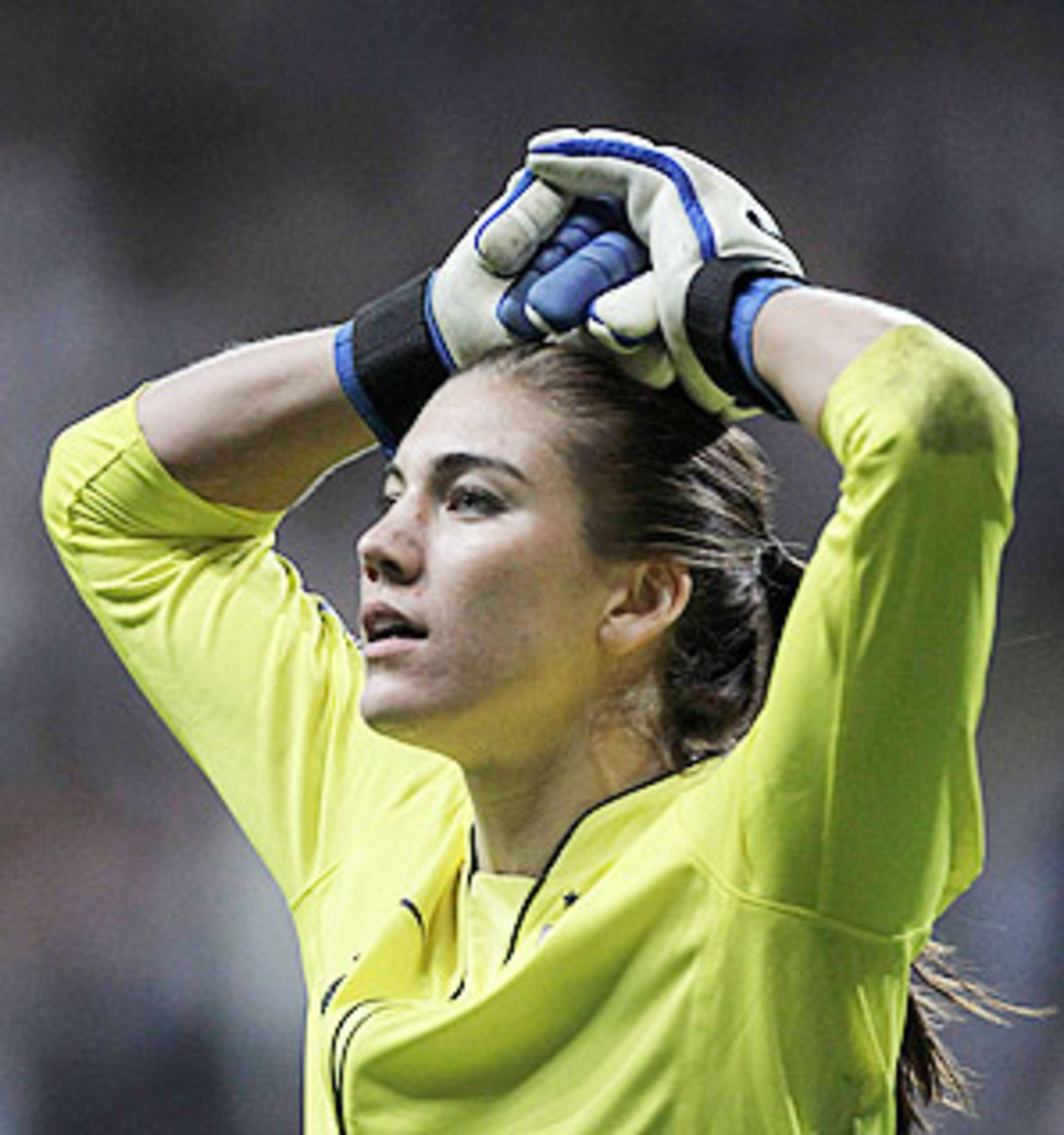After captivating the nation, U.S. women struggle to stay in spotlight
Not long ago -- well, very long ago if you're only tracking in 15-minute news cycles -- much of our country halted on a Sunday afternoon. They tuned into a television, tracked on a smart phone and wanted to know what happened when an appealing team of soccer players wearing our nation's uniform took the field against an emotionally charged team from Japan. It was the Women's World Cup. It was cool. It was entertaining. It was invigorating.
It's been a month since the drama, the television ratings, the penalty kicks, the buzz, the bookings for late night and early morning TV shows and the warm welcome home.
And now many of the same players are participating in another one of sports' ultimate moments -- professional league playoffs.
But is anybody noticing?
Women's soccer landed back on the sports map this summer. But is there any bounce? Any carryover? And -- more to the point -- is it fair to expect that there should be?
"It's hard to believe we're having this conversation again," Brandi Chastain said this week.
Oh, but we are.
Brandi and I have had this conversation many times over the past decade -- where's the interest; how do you sustain it; what does it take to build on it; can you construct something concrete on the foundation of an ephemeral summer moment?
Chastain has seen it from all sides. She was the face of the 1999 World Cup victory, a founder of the subsequent professional league -- the WUSA, a player in the watered-down WPS and a cogent television analyst this summer.
"I'm encouraged that we're talking about it," she said, "but I'm discouraged that it's the same conversation."
Here's the reality: It may be the same conversation for a good long while. And no one needs to apologize for that.
The WPS is the successor of the WUSA. The WUSA was a league launched on the back of the most successful women's sporting event ever: the 1999 World Cup. Turned out it was too ambitious, too big. The WPS struggled into existence 10 years later, in the teeth of the worst economy since the Great Depression. Expectations were low and were quickly lowered further. Teams have contracted, vanished, moved. The league has suffered lawsuits, anonymity, apathy.
The league now consists of seven teams, tucked away into corners of the country. They are close enough to major media markets that should make them valid but removed just enough to make them an afterthought: Boca Raton, Fla., Chester, Pa., Rochester, N.Y.
The league's biggest news is an ugly public dispute between the league and Dan Borislow, the owner of the Boca Raton magicJack. One result of the various legal maneuverings and recriminations is that Borislow stepped down as coach and was replaced by Abby Wambach, who is serving as a player/coach. That's not the kind of publicity the league needs.
Still, there's a pulse. The WPS is holding on. Overall, the league is still averaging less than it drew last year. Since the World Cup however, the league has witnessed a boost in attendance -- 89 percent over the first half of the season. But has attendance jumped enough to make a difference?
"If it can hold the status quo, that almost can be seen as a positive," Chastain said.
The first playoff game was on Wednesday night in Boca Raton. Some of the biggest stars of the summer -- Abby Wambach and Megan Rapinoe -- were competing for the magicJack. Wambach scored two goals and Rapinoe added another as the magicJack beat Boston. But only 2,057 were in the stands and, nationally, there was barely any mention of the game. No buzz.
That's always the yardstick we carry around for women's sports. A big event should lead to sustained interest in a professional league.
It's not a fair gauge. It's not the tape measure we use on other events. No one thinks that the fresh face who wins freestyle aerials at a Winter Olympics can sustain a successful freestyle aerials league. Nor were MLB, the NBA or the NFL built on the backs of events that only happen every four years. A successful event doesn't equal a thriving league. A team broken apart and scattered among many teams loses its appeal.
"With events that are once every four years, we fight the same battles again and again and again," Chastain said.
But the women who play professionally don't back down from the fight. They know their game will only progress with a professional league. They know that other countries are catching up. They embrace the challenge.
For the first time in a decade there are women on the U.S. team who sustain interest. Hope Solo, one of the most interesting female athletes of her era, has mass-market appeal, though she's working on rehabilitating her injured shoulder right now. If she was playing, attendance may have jumped even further. Wambach -- the striker the U.S. men's team wishes it had -- also has staying power. Alex Morgan is the brightest face of the next generation.
They are strong, appealing athletes who don't need to have their popularity qualified in any way. They have their social media following, their pop culture appearances. They have -- for now -- a professional league to play in.
And they have the London Olympics in just 11 months.
"The Olympics exist in a different space, the excitement is greater and it draws in the non-soccer fan," Chastain said. "That's very helpful."
There's a little momentum, which is really all that can be expected.
And there's another playoff game on Saturday.






